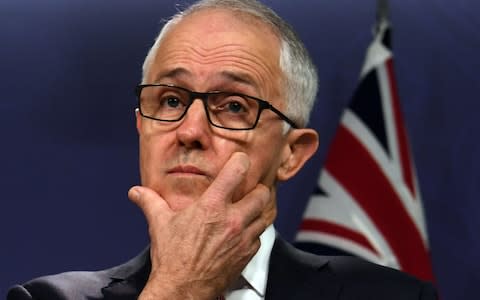Catholic Church fearful priests and nuns will have to register as Vatican spies under new laws in Australia

The Catholic Church in Australia says new laws aimed at curbing interference by foreign states could force bishops, priests and nuns to publicly declare that they are agents of the Vatican.
The laws, which followed concerns about China’s efforts to meddle in Australian politics and universities, require anyone acting for a foreign power to reveal their status or face criminal charges.
But Catholic leaders say the measures will “silence” members of the Church involved in advocacy and could require them to register as agents of the Pope or the Vatican.
"Catholics are followers of Jesus Christ, we are not agents of a foreign government,” Catholic Bishop Robert McGuckin, from Toowoomba in Queensland, told a parliamentary inquiry.
"The Catholic Church in Australia is made up of millions of Australian citizens who practice their faith, and they are not beholden to a foreign power.”
He added: "It seems that every Catholic involved in advocacy may need to register and report. Given Catholics make up more than the 20 per cent of the population of Australia … we think that's a lot of registrations."

Malcolm Turnbull, Australia’s prime minister, introduced the crackdown on foreign political donations and lobbying last month following growing concerns about interference by outside states, particularly China.
This included a scandal involving an MP who made a pro-China speech after receiving a donation from a Chinese property tycoon. But the government rejected claims that the laws were too broad and could hamper religious activity or freedom of speech.
"We could introduce more safeguards if needed, I'm not convinced there is a need," Andrew Hastie, a Liberal MP, told ABC News.
"I think if you're seeking to build Australia and not undermine it as an Australian citizen then you shouldn't be concerned.”
The Australian Catholic Bishops Conference said the laws contained an exemption for religious groups but it was wrongly based on the assumption that the Catholic Church in Australia acts on behalf of the Vatican.
“The Catholic Church is not the only organisation with international links that is in danger of being captured — unintentionally or not — by this legislation,” Bishop McGuckin told The Australian.

